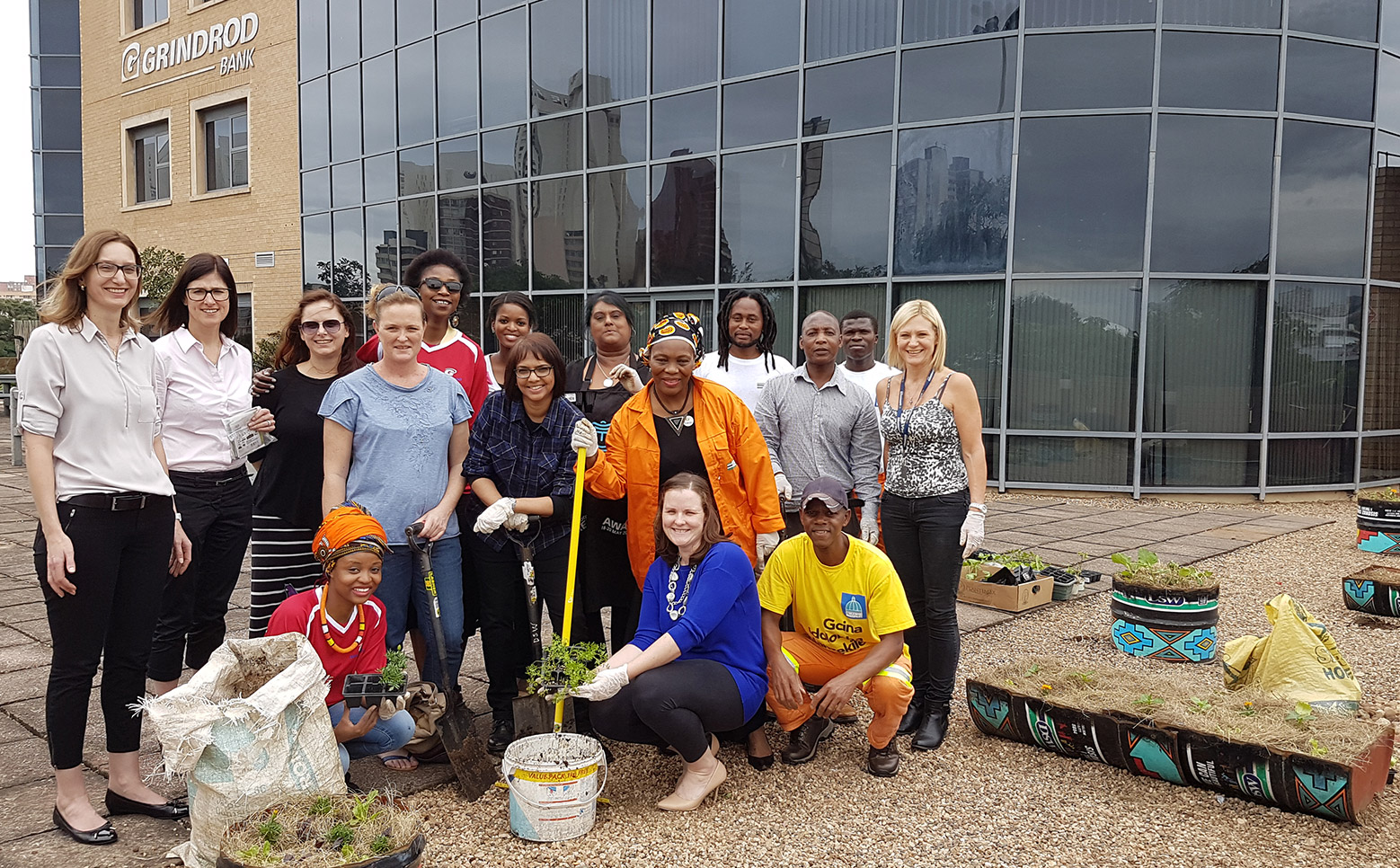Main image: From the left: Cathie Lewis; Chantal Porter; Cornia Stander; Sheilla Ronda; Zandile Metu; Indra Pillay; Jabulani Memela (DSW); Zamokuhle Luthuli (DSW) Second row: Gerda Quintal; Feroza Ismail; Duduzile Ndlovu (DSW) ;Comfort Sabela ; Kim Ferguson Kneeling; Sibusisiwe Ndlovu; Kerry Boekestein; Tom Mseleku (DSW) Photo: Marietjie Coertzen
To create awareness around climate change, a wonderful urban garden was created at Grindrod Bank Kingsmead offices on Friday 25 November 2016.
Sibusisiwe Ndlovu, Grindrod Graduate and Marietjie Coertzen, Grindrod’s Sustainability Professional, were the drivers behind the project.
Durban Solid Waste designed the garden and provided drums and compost. Grindrod Logistics donated tyres and employees donated seedlings and their time to plant the garden. We hope that many more urban gardens will follow.
Did you know that South Africa emits 9.18 tonnes of carbon emissions per capita? That is nearly double the world average of
4.49 tonnes.
Did you know that South Africa releases 511 million tonnes of carbon dioxide into the atmosphere each year?
Did you know that the Spekboom is an environmental miracle worker? You guessed it! They planted it!
The Spekboom, is a succulent tree native to the Karoo region of South Africa. They grow to between 2 and 5 meters tall, are very resilient and can live up to 200 years. As with most trees, spekboom absorb carbon from the air to make plant tissue. Unlike most trees, however, is the degree to which this little plant can reduce carbon dioxide in the atmosphere - studies show that one hectare of spekboom plants can remove up to 4.2 tonnes of CO2 per year and that spekboom is about 10 times more effective at reducing carbon than tropical rainforest trees. It’s even 100 times more effective than a pine tree of the same size!
Along with the Spekboom, vegetable seedlings and marigold seedlings were planted. Marigold flowers are natural pesticides.
It is hoped that this Grindrod community garden will encourage staff to take ownership – water the plants if they need it, pull out a weed if you see it and help yourself to the fruits of the garden if you need it.

